LA becomes latest to curb use of plastic shopping bags
Updated: 2013-07-09 11:55
By Chen Jia (China Daily)
|
||||||||

Los Angeles next year will join Beijing, San Francisco and other cities that have banned or limited the use of plastic shopping bags.
Stores in the second-biggest US city will be required to offer paper bags for 10 cents each to shoppers who don't bring their own bags. Proceeds from the 10-cent fee will enable retailers to offset the cost of complying with the new LA ordinance. It takes effect on Jan 1 for stores with over $2 million in annual sales - including big-box retailers like Wal-Mart and Target - and on July 1 for smaller ones.
"People have different attitudes toward this new regulation. I was surprised to find that my Chinese roommates, from Beijing, are more accepting of the law," said Los Angeles resident Michelle Nguyen.
Five years ago, China introduced a ban on production of ultra-thin plastic bags (less than 0.025 millimeters) and prohibited most retailers from giving them to customers for free, with hygiene-based exemptions for raw meat and noodles.
Los Angeles accounts for about 30 percent of the population in California, which has some of America's most stringent environmental-protection laws. Some city officials said pollution by bags demanded urgent action that couldn't wait for state lawmakers.
"Enough waiting for the Legislature to someday act on this - let's take a lead," Councilman Paul Krekorian was quoted as saying.
According to Heal the Bay, an organization dedicated to improving the quality of Santa Monica's coastal waters, plastic bags cost California taxpayers $25 million a year in landfill costs. Residents of Los Angeles consume 2 billion single-use plastic bags annually, which cost $2 million to clean up.
By the end of May 2013, China had reduced the use of ultra-thin bags by 66 percent, saving the equivalent of 1.6 million metric tons of petroleum, according to the National Development and Reform Commission.
However, a recent study by the International Food Packaging Association found that the Chinese restrictions haven't been carried out fully. Ultra-thin bags are still being used, even in large supermarkets, the industry organization said. Its study covered chain supermarkets, open-air markets, wholesale markets and roadside stalls.
All of the supermarkets were found to be providing shoppers plastic bags at checkout for a fee, but only four provided bags equivalent to or thicker than 0.025 mm. Compliance was even more lax at markets and stalls, most of which provided bags thinner than 0.025 mm and free of charge, the report said.
In Texas, Dallas City Council member Dwaine Caraway is trying to revive a citywide debate to ban disposable plastic bags, after previous initiatives failed. Some in Dallas have said a ban is unnecessary and that plastic bags consumed can be recycled and reused.
"We want to stick with statistics and reality, as opposed to more inflammatory, ideological discussions that plastic bags are hanging in trees all over," Mark Daniels, an executive of bag maker Hilex Poly Co, told the Dallas Morning News.
The environmental harm attributed to plastic carryout bags varies by type, and outright bans are rare.
"If we have choices, I still prefer to use thicker plastic bags because they are more comfortable and durable to carry than the paper checkout bag," San Francisco resident Jean Tseng told China Daily.
In 2007, the city launched the first such prohibition in the United States, demanding that large grocery stores stop dispensing single-use plastic bags (a fee is charged for compostable bags or bags made from recycled paper). As of last October, all retail stores as well as takeout restaurants in San Francisco are now covered.
Contact the writer at chenjia@chinadailyusa.com
(China Daily USA 07/09/2013 page2)
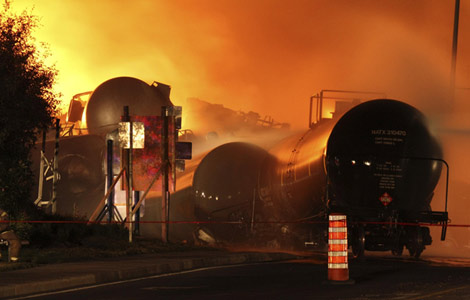
 Quebec disaster death toll jumps to 13
Quebec disaster death toll jumps to 13
 Mourn for students in San Francisco air crash
Mourn for students in San Francisco air crash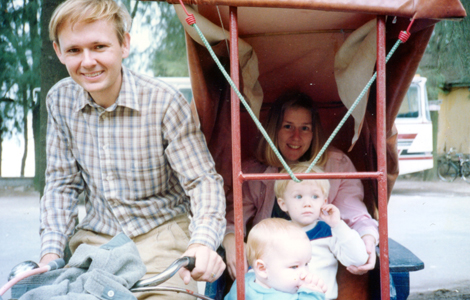
 Rolling stone finally settles
Rolling stone finally settles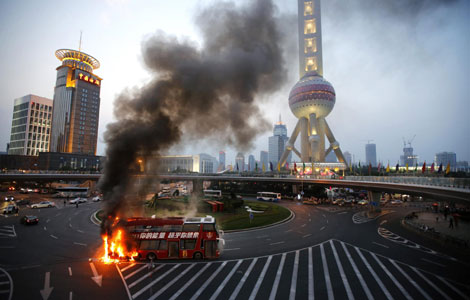
 Double-decker bus caught fire in Shanghai
Double-decker bus caught fire in Shanghai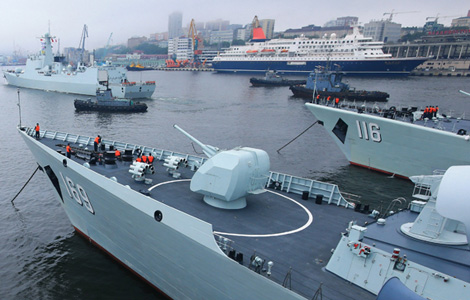
 China, Russia begin live-fire navy drill
China, Russia begin live-fire navy drill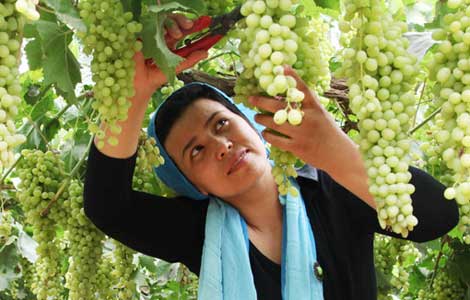
 Grape expectations for Xinjiang county
Grape expectations for Xinjiang county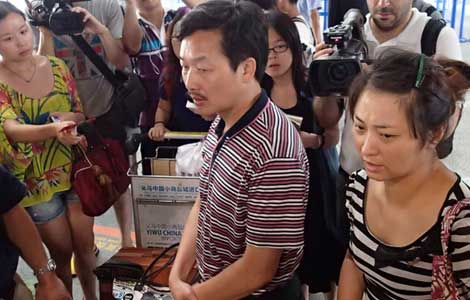
 Air crash victims' parents leave for US
Air crash victims' parents leave for US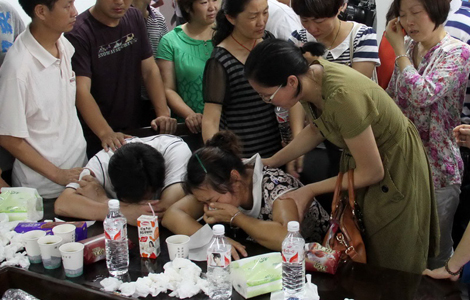
 Victim's family mourn loss
Victim's family mourn loss
Most Viewed
Editor's Picks

|

|

|

|

|

|
Today's Top News
Laden's life on the run revealed
US mulls hastening withdrawal from Afghanistan
Country singer Randy Travis in critical condition
Police look for suspects in Brazil soccer slaying
China's inflation grows 2.7% in June
Nuclear power pricing system launched
Air crash victims' parents leave for US
Terror law called for after attack
US Weekly

|

|






